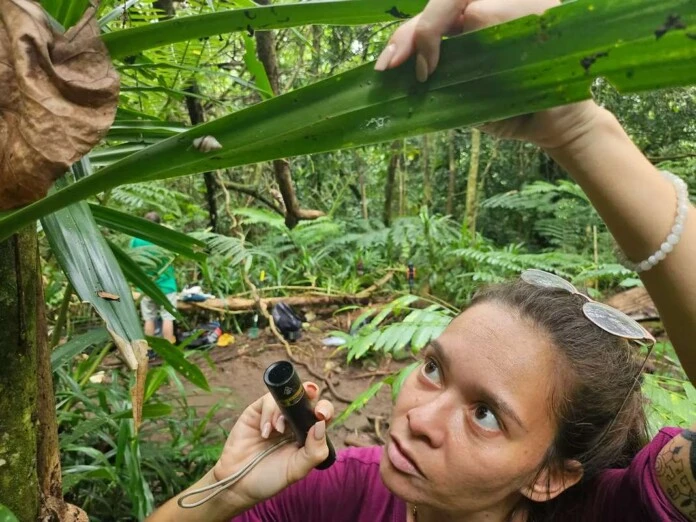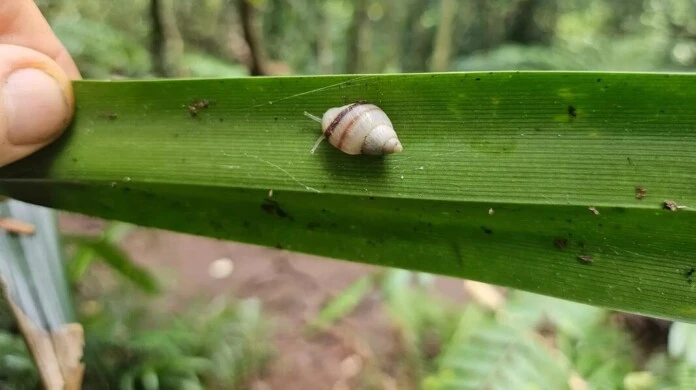A global conservation effort to reintroduce the tiny Partula tohiveana snail to its native wild habitat has achieved a significant milestone, with the discovery of wild-born adult snails for the first time in 40 years. This marks a major success in the ongoing restoration of the species in French Polynesia, confirming that previously reintroduced snails have successfully bred in the wild.

The London Zoo, along with other international conservation partners, has been reintroducing captive-bred Partula tohiveana snails to Moorea Island in French Polynesia for several years. This year, Paul Pearce-Kelly, Senior Curator of Invertebrates & Fish at the London Zoo, discovered unmarked Partula tohiveana snails, proving that the population has successfully established itself and bred in the wild. This development means the species can now be considered “fully established” on the island—a major accomplishment after 40 years of dedicated conservation work.
With this success, conservationists are planning to downlist the species from “Extinct in the Wild” to “Critically Endangered” on the International Union for Conservation of Nature (IUCN) Red List, a significant step toward preserving the species in its natural environment. In early September, a group of 10 species and subspecies of Partula snails, raised in zoos across Britain, the United States, and Germany, were flown more than 9,000 miles to Tahiti. Before making their journey, each snail was carefully marked with UV reflective paint, which glows under UV light to help conservationists track and monitor them during their nocturnal activities.
“Though small, these snails have immense cultural, scientific, and conservation value,” said Pearce-Kelly. “Partula snails are an integral part of Polynesia’s rich cultural heritage and vital to the ecological health of the islands’ forests. Their successful reintroduction provides a valuable model for the conservation of endangered island species.”
Partula snails, or Polynesian tree snails, play a crucial role in forest ecosystems by feeding on decaying plant matter and fungi, thus maintaining ecological balance. The restoration of these snails to their native habitats is essential for reversing ecological damage caused by invasive species, particularly the rosy wolf snail (Euglandina rosea), which was introduced in the 1980s to control another invasive species, the African giant land snail. However, the rosy wolf snail began preying on the native Partula species, leading to their near-extinction.
In the early 1990s, the last remaining individuals of several Partula species were rescued through a collaboration between zoos, including Edinburgh Zoo, and began an international breeding program. Since then, over 30,000 snails from 10 different species, many classified as “Extinct in the Wild,” have been reintroduced to the islands. This year’s release, the largest to date, represents nearly a decade of reintroduction efforts, supported by the French Polynesian Government’s Direction de l’environnement and international zoos.
The coordination of this monumental project has been made possible thanks to funding from supporters, including the Players of the People’s Postcode Lottery, enabling London Zoo to continue its work in bringing species back from the brink of extinction. With continued efforts, conservationists hope to restore the ecological balance of these islands and ensure the survival of the Partula tohiveana and other endangered species.
